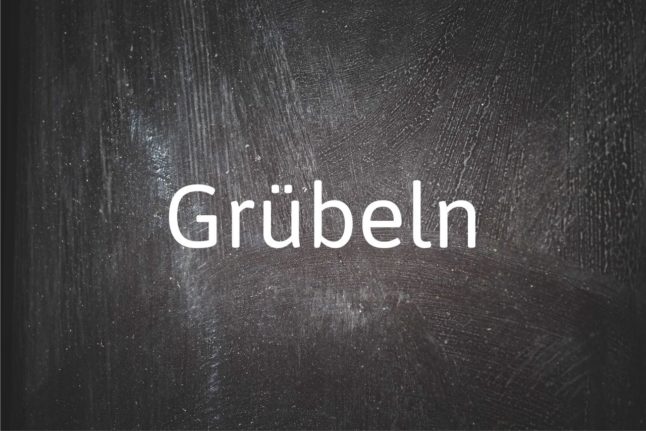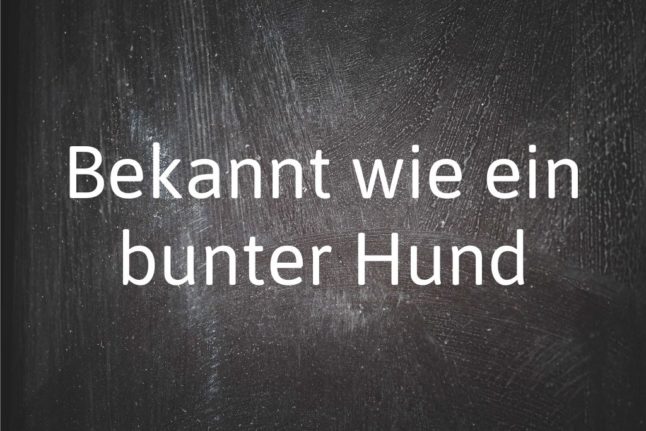This funny-sounding German word is common in every-day speech. Though it is often used comically, there are some strangely specific associations that come with it.
Roughly, it means “to think really hard, almost painfully hard, and often without anything to show for it in the end.” It’s translated as “ruminating” or “brooding”, but in English, those words tend to only come up in literature, whereas the German version is used more colloquially.
Sometimes, it’s jokingly used to describe people who are a little slow in the uptake.
“Darüber musste er erst eine Weile nachgrübeln.”
“He had to think about that one for a little while.”
However, “grübeln” can also be quite serious. It actually comes from the word “graben” (to dig) and so creates the image of someone digging or delving deep within themselves.
Often, people who think in this hard and strained way are considering abstract or vague questions and problems that don’t necessarily have an answer or are impossible to understand. Things like what will happen in the future, what the meaning of life is, what death is.
Sometimes, this can mean facing a lot of internal pain, stress, or even anguish as a result of thinking so much.
While “grübeln” used to be associated with the great thinkers and philosophers, it nowadays is often used to describe symptoms of overthinking in depression or anxiety.
So, this funny little word has a lot of layers to it! No surprise then, that it has an entire German Wikipedia page dedicated to explaining it.
Examples
Er grübelte die ganze Nacht über seine Rechenaufgabe.
He ruminated over his maths problems all night long.
Beim Grübeln kommt man oft in negativen Gedankenkreisen.
When brooding on something, you often get caught up in negative circular thoughts.



 Please whitelist us to continue reading.
Please whitelist us to continue reading.
Member comments